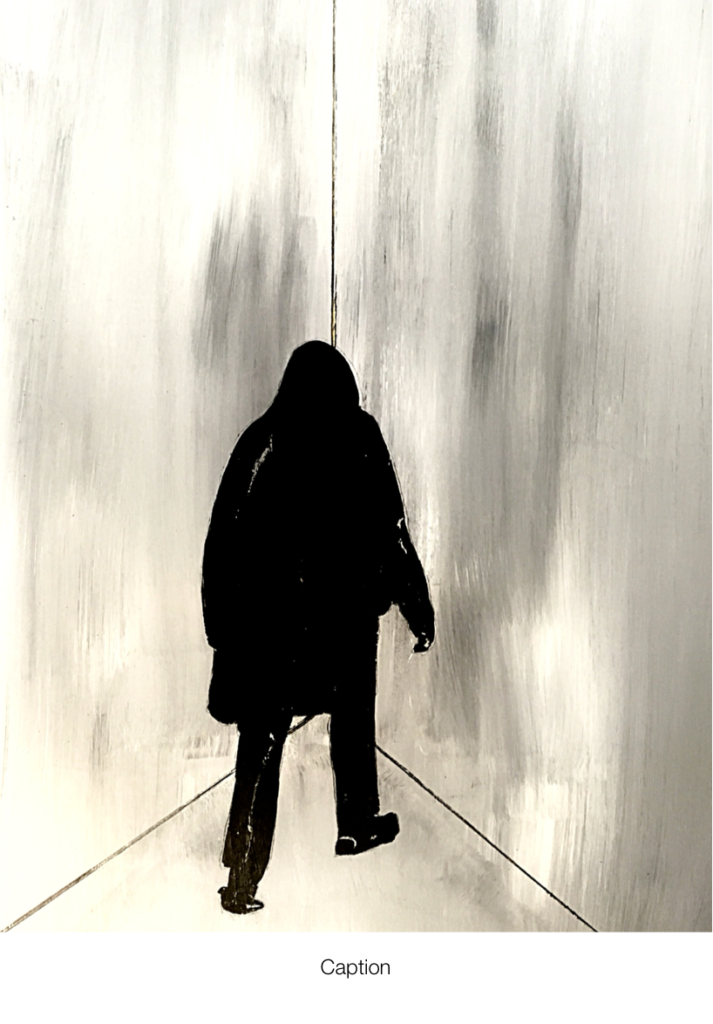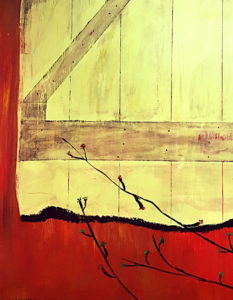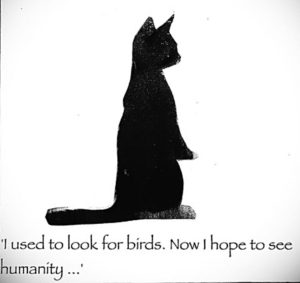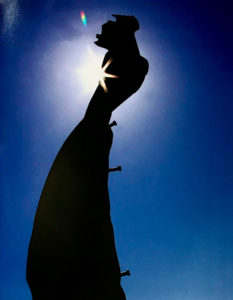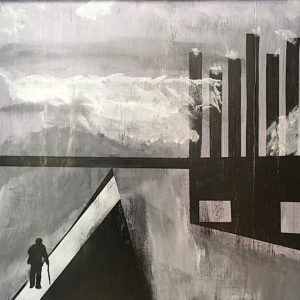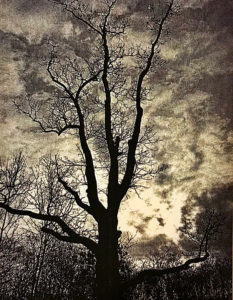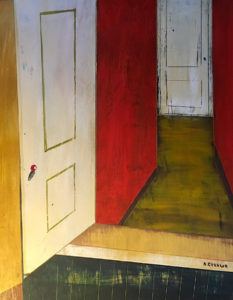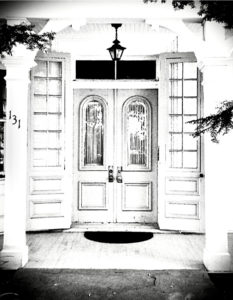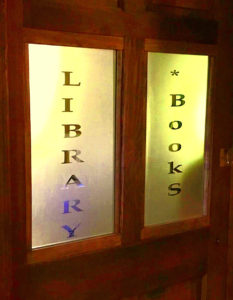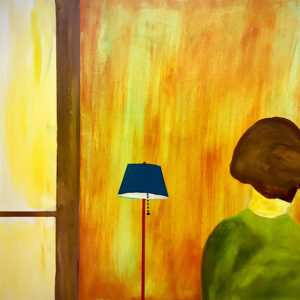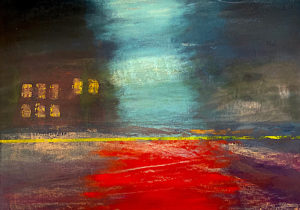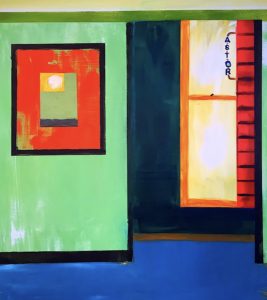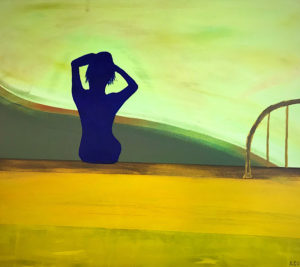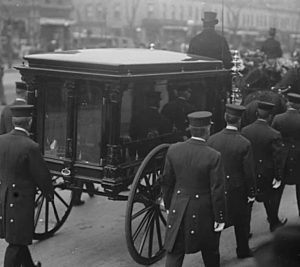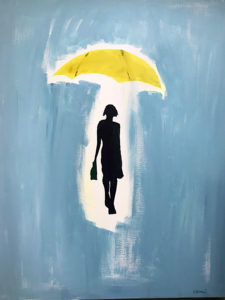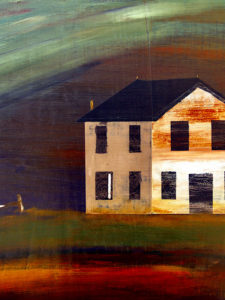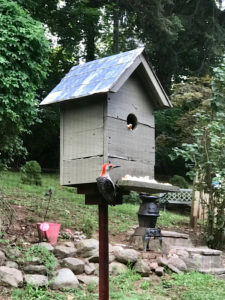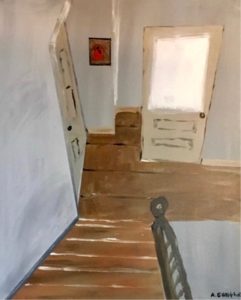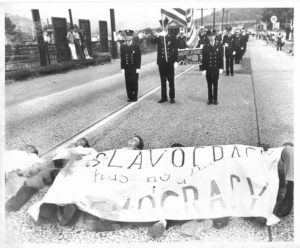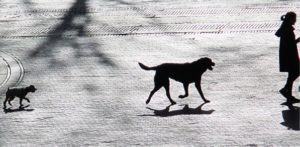April 5, 2021
By Arthur H. Gunther III
thecolumnrule.com
ahgunther@hotmail.com
He shuffles in his twilight, this once robust newspaper compositor who could knock someone out with one punch, dance for hours at a ballroom and bellow obscenities in very bad temper, all with a charm that oddly attracted. He could also be giving, loyal and compelling in conversation. Now he is a mouse, in his later 90s, dependent on six pharmaceuticals and the care of the children he often ignored.
Tables turn in life, and because this old fellow has no more fight and no longer has the strength to be the family godfather, the field advantage has passed to his three children: a son who would rather place him in an assisted living facility, one daughter whom he berates – albeit in weakness – as he did his wife, and another daughter who has always reminded him of his beloved mother.
The children could conspire to use their combined leverage and get this man out of the suburban tract home where he has lived for more than half a century. They could exact revenge for some parental neglect, for the man’s selfishness, heave him into a home and be done with it. No more required weekend stays at one home, then another. No more filling prescriptions. No more watching his diet. No more blues when he sits in the dark staring ahead like a zombie.
But they will not free themselves. They will not leave this father in even the best nursing home. They will not force him from the house that was rarely a warm home in their childhood. They will not turn the tables. Blood is indeed thicker than water, and the old man’s children are good people.
So they continue living in guilt, in fear, on the edge, silently praying that the father’s end comes peacefully, in his sleep, not from the cancer or heart trouble or senility which, by luck or design, has escaped this particular human.
Until then, they will endure, waiting for a prayer’s answer, with a gnawing pit in the stomach because they have called for death.
There are sparks of old, times when a light blinks on in this old man, and he recalls moments spent with family and friends and workers that bring a smile to his face and a gleam in his eye, in turn encouraging the same look in his caring children. Such moments are like the rare ones of their youth, when a father suddenly took the family for a spin in the new car, and there were smiles and laughter. We all want parents, and we all want to be happy with them. We all want good memories.
Sometimes, during the nights of his stay-overs, the man cannot sleep, and his children hear him get up and shuffle to the bathroom. It is a long walk, for the steps are small, but even longer, for this is the old age of a man who once bounded into the house and who chased someone down the street after a motorists’ fight. The morning’s walk in the hall reminds them of not only the father’s own mortality but theirs as well, and such revelation in the early hours of a dark morning are particularly frightening.
The children think, at such times, will I be the same burden to my children? Will they be as obligated to take care of me as I am with my dad?
The weekend gathering includes a dinner that takes twice as long to get through because the old man eats slowly. No conversation at all. Then it is TV — 1930s movies or cowboy shoot-em ups the necessary fare, and, sometimes, some recognition of added awakening in the aged fellow. The children feel comfortable in this setting, in a 10 by 12 room with couch and chairs and heat and light and, well, a family gathered. For a time anyway. That lessens the guilt, even as the child chases away thoughts of the inevitable next day, when the father will return home via a 20-mile drive that seems to last as long as a trip to Boston 200 miles away.
There is no talking in the car, the dead-silence tension eased only by Benny Goodman CDs. Most everything has been said in this lifetime, and what was left unsaid probably will remain that way. If conversation comes, it is one-sided: “How is your sister?” “Is your friend coming this week?” “Are you looking forward to a visit with my brother?” One-word answers to these questions. The same answers to the same questions.
Arriving at the old house, left untouched since the death of a saintly, long-serving wife almost 10 years ago, the old man takes three minutes to get his unsteady feet out of the car, leans on his cane, walks to the front door and uses five more minutes of life to find his keys and correctly insert them in a door opened many thousands of times, including hundreds when the father’s own dad was elderly and also shuffled.
But today’s father never thought old age would happen to him, that he would lose a wife too soon, a wife to whom he rarely gave credit but whom he misses so much today in great and constant regret. Now it is his twilight, and he cannot escape. His prayers, too, are for a peaceful end.
The door now opened, the old man profusely thanks a daughter for being so kind, for talking him in for another weekend, for driving back and forth, for getting his pills, for going to the doctor’s, for calling to see if he is all right, and, most of all, though he does not say it, for not throwing him to the wind. He knows he deserves that.
The daughter, her sister and the son, all very different people with varied emotions and needs, share this man as their father. They make their individual judgments about what he should have done, could have done. They wish he had been a much better dad, a decent husband. But they are the products of the mother, too, and they are the good people who are now the father’s angels. Knowing his end is near, and their own judgment, too, soon enough in the quick spiral of time that is earthly life, they see enough of the good in him to squeeze his hand and say their prayers.
The door closes. The old man shuffles to his easy chair, his own judgment seat, for there he is to be lost in thought, in sorrow, for another day, another week, until the next weekend’s visit.
This essay is from earlier writing, re-published because the theme is universal. The writer is a retired newspaperman.
–30–
